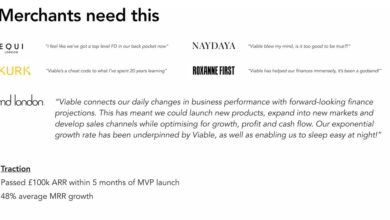UK AI-led fintech Abound Announces New Funding Round to Increase Access to Fair Credit

UK AI-led fintech Abound Announces New Funding Round to Increase Access to Fair Credit
London-based credit technology company Abound has announced a new financing round which in aggregate could extend up to £0.8bn. The new funding comes on the back of continued growth, with Abound reaching profitability just 3 years after launch.
The funding announcement—one of the largest in Europe so far this year — is a mixture of debt and equity. Abound will use the new funding to expand into prime lending in the UK, and to roll-out Render, its proprietary AI credit technology platform, globally.
Abound is now one of the UK’s fastest-growing fintechs, having issued over £300m in loans to date, and is aiming to double the size of its team from 65 to 130 people this year. The new funding includes a multi-year asset backed debt financing arrangement (backed by loan originations) from existing financier Citi, while the Series B equity round component was led by Silicon Valley-based GSR Ventures.
Abound’s AI technology, Render, scans customers’ bank transaction data to understand each person’s unique financial situation and determine how much they can afford to repay each month. This contrasts with traditional credit checks, which rely on statistical averages which may be right on average but are wrong in almost every individual case.
The Render technology means that Abound sees 75% fewer defaults than the industry standard. As a result, Abound is able to offer lower interest rates to consumers than they can typically find elsewhere. This market leading credit performance is also the reason that existing investors are continuing to back Abound.
It is estimated that over 15 million people in the UK struggle to borrow for unexpected costs, with many with poor credit scores having to accept unacceptably high interest rates. Abound’s mission is to change the way that credit decisions are made globally so that more people can access loans at rates they can afford to repay, driving financial inclusion.
Abound is leading the use of Open Banking and AI in consumer credit decisioning. While this technology is at an early stage, Abound believes it will become a must-have in the lending space over the next 3 years. Abound is already providing its industry leading Render technology to banks and traditional lenders across Europe to support them through the AI-transition.
Gerald Chappell, CEO and co-founder of Abound and Render, said:
“A new investment of this size, which comes from a mixture of VC funds and global banks, is a testament to the demand for and success of Abound and Render. It speaks to the confidence investors have in our business to keep growing and in our AI-powered technology to continue transforming consumer credit.”
Michelle He, the co-founder of Abound and Render, said:
“Open Banking has empowered consumers to take ownership of their data to get more personalised financial products. With Abound and Render, we’re showing that this can often mean they can access cheaper rates. We strongly believe that this is the future of lending.
The Credit scoring system is dated and omits crucial pieces of the puzzle, like whether someone can actually afford to repay the loan. For those ready to embrace Open Banking, Render can offer them more accurate checks and, therefore, lower costs and risk.
Quite simply, the technology works, and that is why we continue to grow at such a pace and why our investors continue to back us.”
Jefferson Chen, partner at GSR Ventures, said:
“We are thrilled to expand our partnership with Abound, which is harnessing the power of AI and open banking to revolutionize credit decisioning. Their data-driven approach allows for more accurate risk assessments, enabling them to extend affordable credit to a wider range of customers in the UK and internationally. Abound is at the forefront of responsible innovation in financial services, and we are confident their solutions will drive financial inclusion on a global scale.”



